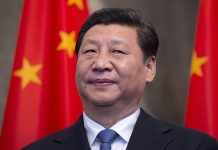As of Sunday, the overall number of confirmed cases of nCov-2019 infections on the Chinese mainland reached 17,205, and a total of 361 people had died of the disease.
Amid the epidemic’s outbreak, China’s stocks plunged more than 8 percent at market open as trade resumed on Monday after the Spring Festival holiday. Experts believe there are some irrational factors behind the pessimism, including panic caused by the “herding effect.”
Across the globe, this sentiment has also been reflected in some media’s reports, suggesting concerns that the economic impact on China could be severe.
However, as the fundamentals of China’s long-term and high-quality economic growth have not changed, several investment banks including Swiss UBS have also indicted the epidemic’s economic impact will be temporary.
Why will the impact be temporary and limited?
First, the epidemic’s impact is mainly inflicted on the first quarter, during which the Chinese Lunar New Year is celebrated. Usually, the proportion of Q1’s economic growth in the whole year is relatively lower than other quarters.
Though it is imprudent to judge the economic impact of the epidemic by historical experience, some analysts have compared the nCov-2019 outbreak with the 2003 SARS epidemic and made economic loss projections on this basis, with the presumption that the economic blow this time will be much bigger.
It’s true that the SARS resulted in a sharp decline in China’s GDP growth in the second quarter of 2003, but the negative impact was largely offset by higher growth in the following two quarters, and the annual growth rate was about 10 percent. It’s also important to notice that today’s Chinese economy is not what it was 17 years ago. It is much bigger, healthier and more balanced in structure. China’s current economic strength, resources and ability to deal with emergencies have all been significantly strengthened since that time.
Second, economic activities after the epidemic will much likely be stronger than normal, to a certain extent, to make up for the gap left by the economy during the epidemic. The epidemic will surely put a damper on the services sector, especially such consumer industries as tourism, catering, entertainment and logistics. It will also harm the manufacturing sector in the mobile phone, automobile, and electronic industries, as well as the trade sector. On the other hand, the epidemic will not completely eliminate economic activities, but instead largely bring about a postponement of economic activities.
For instance, if you don’t travel during the Spring Festival, it doesn’t mean you won’t travel, but you’re likely to reschedule at a later time. Once the epidemic disappears, consumption of goods and services that can be delayed will rebound.
A report released Saturday by the Shanghai Institutes for International Studies noted even in the short term, the epidemic has not caused a negative effect on all the sectors but has benefited industries such as electronic commerce and online games and entertainment.
From the supply-side, the short-term impact is reflected in a pause of some production activities. Once the epidemic subsides, production will resume, with above-normal efficiency and speed. – The Daily Mail-China Daily News exchange item





